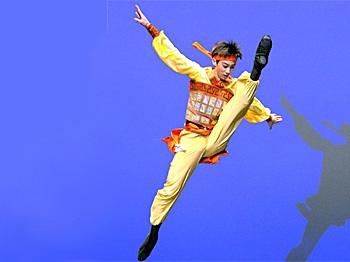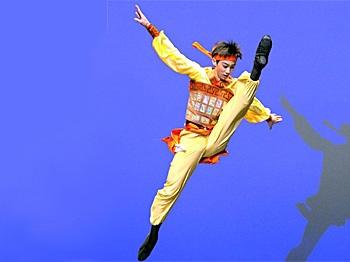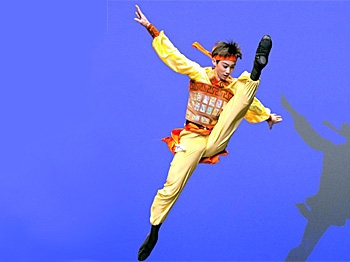BETHESDA, MD―New dancers are finding their way to Chinese Classical Dance as the Shen Yun performances win popular acclaim worldwide. A dance competition is one way to generate interest in Chinese Classical Dance and to find tomorrow’s most talented Chinese Classical dancers.
But “dance” isn’t all that you may think it is. There is a large “acting” component in Chinese Classical Dance, and this fact may hold the key to its strong appeal to aspiring young dancers.
Two young men who come from Maryland tied for first place in the third annual “International Classical Chinese Dance Competition,” which was a four-day event held in Tribeca in lower Manhattan, New York City, at the Tribeca Performing Arts Center.
Tony Xue, from Bethesda, Maryland and Rocky Liao, from Damascus, Maryland each won $10,000 for their performances in the male junior division in Chinese Classical Dance which was held from June 19 to June 21.
Both young men have been performing in the Divine Performing Arts, now known as Shen Yun Performing Arts New York company, and have toured throughout the world, including Frankfurt, London, Antwerp, Paris, Oslo, Linkoping (Sweden), Aarhus (Denmark), Stockholm, Berlin, Lodz, Vienna, Brno (Czech Republic), Edinburgh, Dresden, and Amsterdam.
Maryland Dancers Win International Chinese Classical Dance Competition
New dancers are finding their way to Chinese Classical Dance as the Shen Yun performances win popular acclaim worldwide.

Rocky Liao said the two parts of the competition tested his 'ability of technical dance' and his 'ability to express a character.' Edward Dai/The Epoch Times
|Updated:






